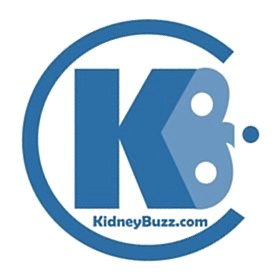© ALL CREDIT TO THEIR RESPECTIVE OWNERS.
One of the over 115,000 monthly KidneyBuzz.com viewers sent an email to ask, "How come Lidocaine is not covered under Medicare or Medicaid anymore? What else can I do or use?"
Recommended Reading: 3 Ways To Ease Chronic Kidney Disease And Diabetes Which Patients May Be Completely Missing
This is a common complaint we hear from Chronic Kidney Disease and Dialysis Patients. Some very important medications are not covered by a patient's Insurance Plan. For instance, Lidocaine is a local anesthetic (numbing medication), and it works by blocking nerve signals in the body. Lidocaine Topical (for use on the skin) is used to reduce pain or discomfort caused by skin irritations and is often used by Dialysis patients to lessen the pain associated with Hemodialysis needle sticks. Still, it is suggested that many insurers do not cover the cost of this medication for those with Chronic Kidney Disease. Prescription drugs can be expensive, especially if you have to pay the full cost out-of-pocket. In the case of Lidocaine or any other drug, patients do not have to suffer pain or severe financial burden if their medication is not covered by insurers. The following are tips that patients may use to help affordably fill the prescriptions that they need:
1.) Follow your insurance company’s drug exceptions process. This allows Chronic Kidney Disease and Dialysis patients to get a prescribed drug that is not normally covered by his/her health plan. Generally, to get a drug covered through the exceptions process, a Chronic Kidney Disease patient's Nephrologist must confirm (orally or in writing) that the desired drug is appropriate for their medical condition and that all other drugs covered by the plan (1) have not been as effective as the drug they are asking for, (2) any alternative drug covered by the plan has caused or is likely to cause side effects that may be harmful, or (3) there is a limit on the number of doses a patient is allowed to take. Due to the fact that the details of the exception process are different among insurers, patients should contact their insurance company directly for more information.
2.) Appeal a decision not to cover necessary prescriptions. Chronic Kidney Disease and Dialysis patients have the right to request an appeal if a health insurer refuses to pay coverage. The appeal is often reviewed externally by a third party. Insurers must tell you why they’ve denied your claim, and they have to let you know how you can dispute their decision.
3.) Compare prices. Most Chronic Kidney Disease patients assume that drug prices are regulated or fixed. That is just simply not true. Prices vary wildly in pharmacies that are literally across the street from each other, especially when filling generic medications. For prescribed medications like Lidocaine which may not be covered by a Chronic Kidney Disease patient's Insurance Plan, patients may consider using online tools like GoodRx.com (click here) to compare prices of different pharmacies for the same prescribed medications. GoodRx.com suggested that it offers, "prices and unbiased coupons and discount information for legitimate, licensed US pharmacies that you already visit regularly."
4.) Consider substitutes. Emla cream is considered to be a substitute for Lidocaine. Similarly to the popular pain reliever, it is a local anesthetic (numbing medication), contains lidocaine, and works by blocking nerve signals in the body. Emla is said to be less expensive and used by many Chronic Kidney Disease patients to prepare for Dialysis treatments. Likewise, Chronic Kidney Disease patients may consider talking to their Nephrologists about less expensive alternatives should they be unable to have their Insurance Companies cover the cost of preferred medications.
Recommended Reading: Is Nerve Pain Inevitable Among Chronic Kidney Disease Patients Conducting Hemodialysis?
How do you afford your medication? Share your responses with the nearly 41,000 Friends at the KidneyBuzz.com Facebook Fan page (click here). Moreover, consider following the over 115,000 monthly visitors to KidneyBuzz.com for your Number One (#1) source of Daily News, Information, Impact Meals, Inspirational Quotes, and tailored Products and Services which teach Chronic Kidney Disease, Dialysis, Kidney Transplant, Diabetes and High Blood Pressure patients how to better manage and improve their lives.







